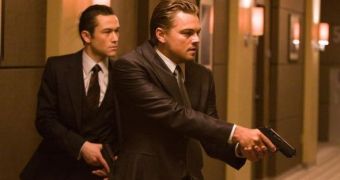Partly because of its cliffhanger ending, partly because of its very architecture, “Inception” is considered by many fans and critics a very confusing film. Leonardo DiCaprio, who plays the lead, admits that he too was somewhat taken aback by the script.
As fans must already know, in “Inception,” DiCaprio is Cobb, who specializes in breaking into dreams and stealing people’s secrets. It’s industrial espionage taken to the next level basically, for those who haven’t seen the film yet.
The film details one particular adventure of this type, which spans over several dreams (dreams within dreams actually), which means the viewer has to pay a lot of attention to see how everything is tied up together.
If some were lost along the way, it’s no shame: DiCaprio himself has some issues with the script, he revealed in a recent interview cited by iShowbiz.
According to the actor, who is reportedly in the running for an Oscar for his take on the tormented Cobb, after he read the script to the film, he had to meet with director Chris Nolan and have him explain everything in detail to him.
“It seems that Leo actually thought the script was confusing upon first read and that he needed to talk to Nolan for ‘hours’ to solve some problems and to figure out how to act through the whole character of Dominic Cobb, one of the few men named after a store and a salad,” iShowbiz notes.
“I needed to know implicitly where we were. It got incredibly confusing at certain points in the beginning, but the more we talked, the more I understood,” DiCaprio said in a recent interview.
Now, all those who felt the film asked too much of them in terms of attention span can rest assured: they weren’t the only ones to feel this way.
Michael Caine, knowing that “Inception” may have been trying on some and in order to answer a frequently asked questioned, offered an insight into the ending nearly a month ago.
As those who’ve seen it must know, the film ends with Cobb placing the spinning top (with the help of which he verifies whether he’s still in a dream or in real life) on the table as he goes to embrace his children.
The scene ends before it shows whether the top falls (meaning Cobb is in real life) or whether it continues to spin forever (meaning he’s still in the dream), prompting some to speculate that this may hold the key to a possible sequel.
“If I’m in a scene, it’s real; if I’m not, it’s not,” Caine said in an older interview. So there, no more confusion.

 14 DAY TRIAL //
14 DAY TRIAL //